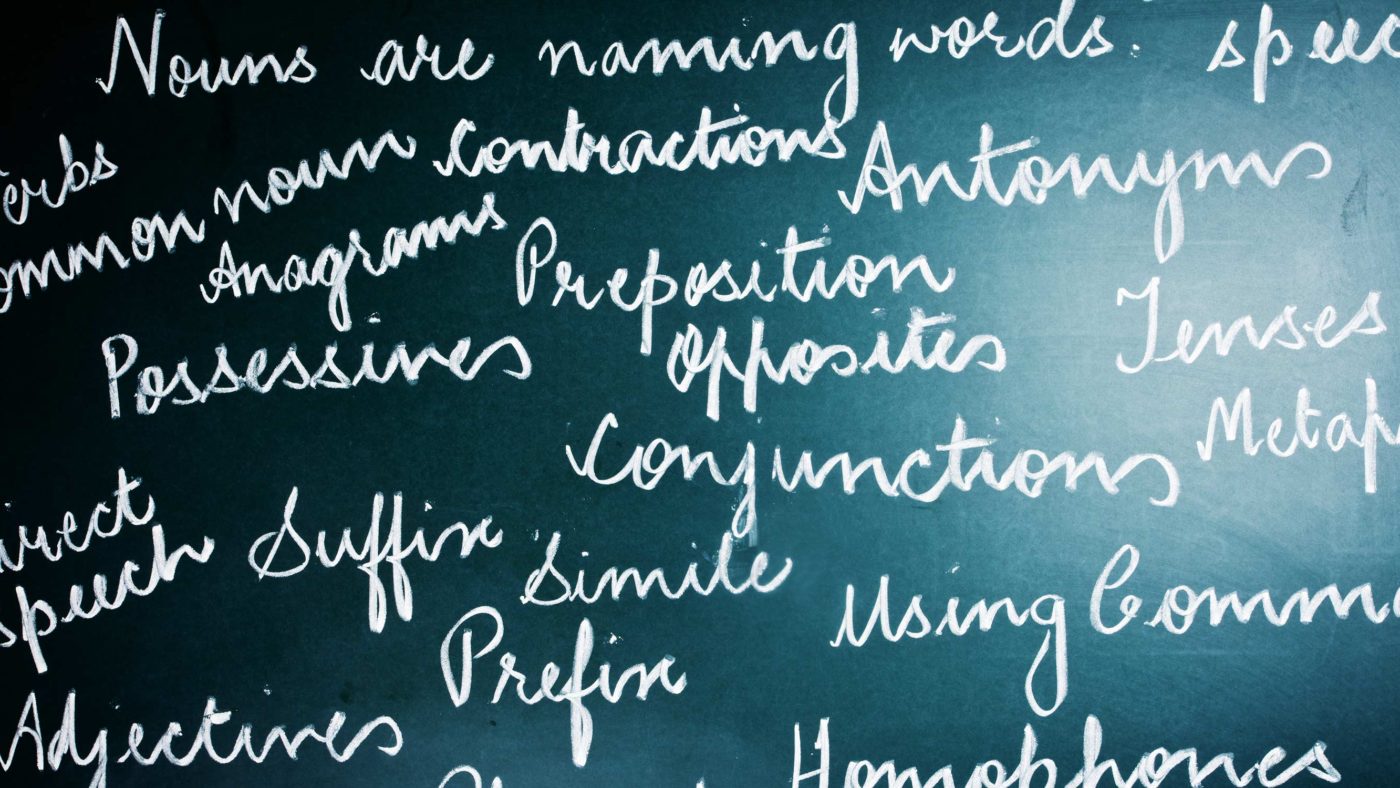Imagine a chemistry teacher questioning why they need to teach their pupils about the periodic table? Or a music teacher complaining about the distress learning scales inflicts on aspiring pianists?
You would hope that such people would be laughed out of their profession, and in these subjects, you might be right. After all, these are the building blocks of subject knowledge: to deny young people an understanding of such areas would stop any meaningful progress. Arnold Schoenberg could only have been able to develop twelve tone and serialist techniques if he’d first had a complete grasp of harmony.
But now imagine arguing that teaching young people the rules of English grammar is not only undesirable, but actually harmful. Well, you don’t have to imagine too hard because Twitter is thick with writers, academics and publishers who believe just this.
Here is Michael Rosen comparing children to ‘cannon fodder’ because they are being irreparably damaged by the primary grammar curriculum. For leftwing relativists like Rosen, rules that do not align with their own beliefs, whether on the page or in the street, are to be distrusted. ‘So-called grammar,’ he writes, is a ‘package of outdated, rigid, misleading, prescriptive, disputed terms, all based on the false assumption that ‘grammar’ is either right or wrong’. I would like to see a grammatically weak job application, filled with all those pesky ‘false assumptions’ about sentence construction, get past the first round for a job at The Guardian.
And here is Helen Mountfield, Principal of Mansfield College, Oxford, humblebragging that she doesn’t know what a fronted adverbial is and, look! she’s ended up with a PhD and a very nice job too, thank you very much, proving (because on Twitter correlation is always causation) that grammar doesn’t matter, and that all children need is ‘lots of lovely stories’ to get ahead. Again, how far would she read a Personal Statement from an A level student applying to her highly selective college if it was littered with errors, where the student’s meaning was as garbled as their syntax? It would probably be hurled into a bin before you could say split infinitive.
There are certain issues that disproportionately aggravate the intellectual, middle-class liberal left, and one of them is teaching the rules of grammar. For some teachers the primary objective of teaching is not to impart a love and understanding of their subjects, but to promote activism and social awareness. To break rules, to overturn establishment thinking, this is what animates them. And so it is entirely predictable that the Chartered College of Teaching is running courses on decolonising the curriculum. Nor should we be surprised that the organisation that claims to represent English teachers have long ago seen the subject as a vehicle for inculcating a certain political perspective among pupils (look for example, at the cover of their latest magazine).
This is a particular, and peculiar, form of self-loathing that has become almost ubiquitous among the (overwhelmingly) white, educated intelligentsia. There is a dislike of order, of rules, and this becomes visceral when it is seen to affect children. We only have to witness the Two Minutes Hate that social progressives indulge in on Twitter when they attack Katharine Birbalsingh for being despotic enough to insist that rules matter when running a school. Without them lies chaos.
For people like Cathy Rentzenbrink, such thinking is akin to systemic abuse. In an article saturated with the now familiar narcissism that defines our age, she asks how a self-confessed ‘highly literate writer’ like her finds it so difficult to teach her son the rules of grammar. If she can’t do it, she complains, then ‘there must be something wrong in inflicting it on all 10 year-olds’. No nuance there, no self-doubt, no sense that perhaps – just perhaps – she isn’t teaching it well, or that her ‘dyslexic, hypermobile’ son may not be typical of all children, and that other children may respond differently.
To nobody’s surprise, she finds that all the other parents in her social group felt the same way: that teaching grammar is ‘Kafkaesque’, ‘obscene’ and ‘revolting ‘, that reduces parents and their children to tears, inflicting ‘anguish’ on untold millions. Such emotive, weaponised language shows that, writer though she may be, her ability to describe reality is limited to her own political sympathies and intellectual preconceptions.
But rules, whether on the page, or in the school corridor, liberate both teacher and student. Understanding rules can be difficult, but that has its own innate value, and once done (to an acceptable, workable, level) they can create space for innovation and creativity. Ian Leslie has written, correctly, that ‘rules clear away all the stuff that gets in the way of children acquiring knowledge. They maximise space for the focused attention that learning requires.’
Learning without rules is play, and although play is appropriate for children of a certain age, nothing serious and sustained comes from it. Teaching without guidance is baby sitting. The problem is that those who seek to deny young people the power of knowledge have an infantilised understanding of the world, and like children existing in a permanent state of grievance they want to inflict on others their own limited world view.
They see this flattening of authority as some form of equality. It is, instead, a flat earth approach to knowledge, as regressive as it is limited. Let the children learn fronted adverbials, get them to know that understanding their language gives them freedom. Grammatical knowledge is power.
Click here to subscribe to our daily briefing – the best pieces from CapX and across the web.
CapX depends on the generosity of its readers. If you value what we do, please consider making a donation.


